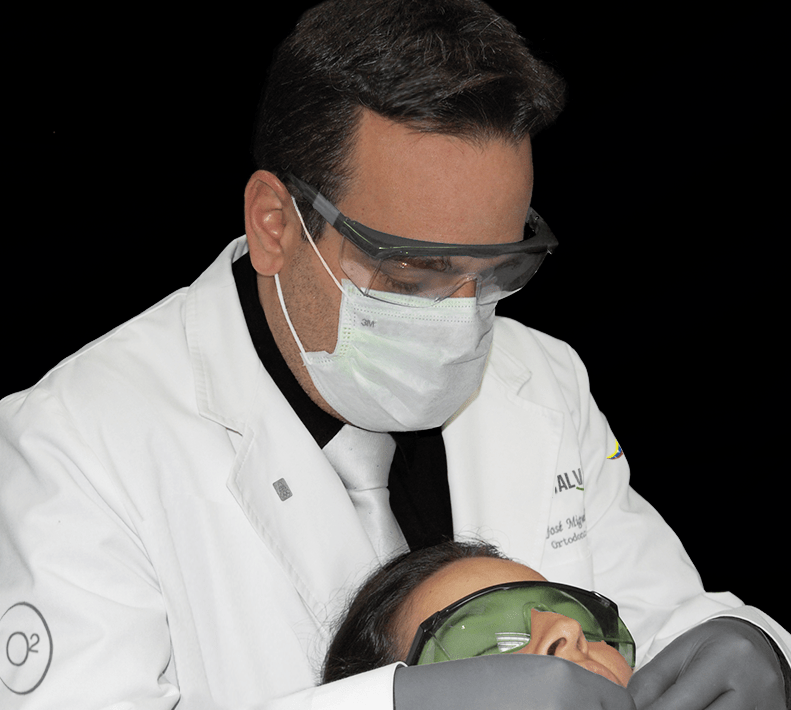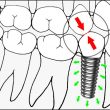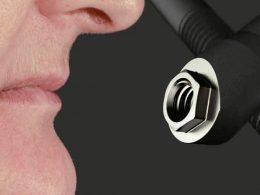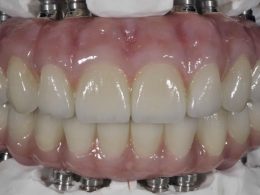Table of Contents
Before elective surgical procedures under general anesthesia, a thorough preoperative medical evaluation by nonsurgical consultants (Internists, Cardiologists and Pulmonologists) may be necessary to help assess surgical risk. Such consultants may also help manage preexisting disease and help prevent and treat perioperative and postoperative complications.
This medical protocol is essential for minimize risk by identifying correctable abnormalities and by determining whether additional perioperative monitoring and treatment are needed. Additionally, elective procedures should be delayed when possible so that certain underlying disorders (hypertension, diabetes, hematological disorders and other abnormalities) can be optimally controlled.
Surgical risk assessment is one of the greatest safety elements in the practice of general surgery.
Routine preoperative evaluation varies substantially from patient to patient because surgical risk varies depending on the patient’s risk factors and risks of the procedure. This is why it is so important that you always tell your Doctor that Zygomatic Implants placement under general anesthesia is the goal of your intervention.
At What Point Should I Assess the Surgical Risk?
Once you have the results of the laboratory tests that we have suggested (complete blood count, coagulation profile, urea, creatinine, glycemia, HIV and VDRL), electrocardiogram and chest X-rays.
Where Should I Go to Be Evaluated?
The ideal is to have a family Doctor who will indicate the studies that we require from the beginning and will guide you step by step in your preoperative evaluation. If not, you should go to a private medical center or to the consultation of an Internist or Cardiology Specialist.
What Does the Surgical Risk Assessment Consist of?
Several surgical risk-predicting models are used in routine clinical practice, and each Specialist has his/her own work protocol. However, the evaluation generally depends of three basic elements:
1- Anamnesis
A relevant preoperative history includes information about all of the following:
- Current symptoms suggesting an active cardiopulmonary disorder (eg, cough, chest pain, dyspnea during exertion, ankle swelling) or infection (eg, fever, dysuria).
- Risk factors for excessive bleeding (eg, known bleeding disorder, history of bleeding excessively with dental procedures, elective surgeries, or childbirth).
- Risk factors for thromboembolism.
- Risk factors for infection.
- Risk factors for cardiac disease.
- Known disorders that increase risk of complications, particularly hypertension, heart disease, kidney disease, liver disease, diabetes, asthma, and chronic obstructive pulmonary disease (COPD).
- Previous surgery, anesthesia, or both, particularly their complications.
- Allergies.
- Tobacco, alcohol, and illicit drug use.
- Current prescription and nonprescription drug and supplement use.
- History of obstructive sleep apnea or excessive snoring.
2- Physical Examination
Physical examination should address not only areas affected by the surgical procedure but also the cardiopulmonary system, as well as a search for any signs of ongoing infection (eg, upper respiratory tract, skin).
Any cognitive dysfunction, especially in elderly patients who will be given a general anesthetic, should be noted. Preexisting dysfunction may become more apparent postoperatively and, if undetected beforehand, may be misinterpreted as a surgical complication.
3- Medical and Laboratory Tests
In general, no additional preoperative tests will be required to those that we have suggested in healthy patients with a low risk of bleeding or other complications. Our basic routine includes complete blood count, coagulation profile, urea, creatinine, glycemia, HIV and VDRL tests.
However, in symptomatic patients or in patients undergoing operations with a higher risk of significant bleeding or other complications, additional medical evaluations may include urinalysis, serum electrolytes, liver enzymes, pulmonary function testing, stress testing, coronary angiography or any other study that, at the discretion of the Specialist, is necessary to guarantee the viability of the surgical act.
Main Surgical Risk Factors
Without taking into account the own risks associated with the type of surgery (fortunately very low in the case of Zygomatic Implants), the main chronic disorders that could condition or contraindicate your surgery are:
- Cardiac Risk Factors Patients with active cardiac symptoms like history of hypertension, coronary artery disease, heart failure, cerebrovascular disease or unstable angina have a particularly high perioperative risk. The state of cardiovascular disease should be determined so that perioperative cardiac monitoring and treatment can be optimized before elective surgery. Other cardiac testing, such as stress echocardiography or even angiography, should be considered if there is evidence of reversible cardiac ischemia on preoperative evaluation.
- Infections Incidental bacterial infections discovered preoperatively should be treated with antibiotics. The Zygomatic Implant surgery should be postponed until the infection is controlled or eliminated. Patients with respiratory infections should be treated and have evidence that the infection has resolved before receiving inhalational anesthesia. Viral infections with or without fever should be resolved before elective surgery is done, especially if a general anesthetic is going to be used.
- Fluid and Electrolyte Imbalances Fluid and electrolyte imbalances should be corrected before surgery. Hypokalemia and hyperkalemia must be corrected before general anesthesia to decrease risk of potentially lethal arrhythmias. Dehydration and hypovolemia should be treated with intravenous fluids before general anesthesia to prevent severe hypotension on induction.
- Smoking and Nicotine Use Smoking causes lung disease and contributes to fracture nonunions, wound healing, higher rates of infection and increases a patient’s risk for pulmonary complications after receiving general anesthesia. Therapists generally recommend patients to quit smoking at least 4-6 weeks prior to elective surgical procedures and least 6 weeks following the surgery.
- Undernutrition This condition increases risk of postoperative complications in adults. Nutritional status is assessed preoperatively using history, physical examination, and laboratory tests. Preoperative and perioperative nutritional support is most likely to improve outcomes in patients whose histories of weight loss and protein levels indicate anemia or severe undernutrition. In some cases, surgery can be delayed so patients can receive nutritional support, sometimes for several weeks.
- Significant Obesity Obesity increases perioperative mortality risk because such patients have increased risk of cardiac and pulmonary disorders like hypertension, pulmonary hypertension, left ventricular hypertrophy, heart failure and coronary artery disease. Obesity is an independent risk factor for deep venous thrombosis and pulmonary embolism; preoperative venous thromboembolism prophylaxis is indicated in most obese patients. Obesity also increases risk of postoperative wound complications due to fat necrosis, infections and dehiscence.
- Diabetes Mellitus Hyperglycemia is one of the major predictors of post-surgery morbidity and mortality. The risks people with diabetes face after surgery include poor and slow wound healing, infection of the wound, other types of infection such as pneumonia, urinary tract infections or sepsis, diabetic ketoacidosis and electrolyte imbalance. In such a way that in these cases, the surgery will be postponed until an effective endocrinological treatment is established to maintain normal and stable blood glucose levels.
- Sleep Apnea Obstructive sleep apnea is the most common type of apnea that occurs at night-time while individuals are sleeping. This condition does not allow for normal air movement in and out of the lungs because of repeated airway collapse, which results in decreased oxygenation and increases a patient’s risk of perioperative complications, especially pulmonary and cardiac complications. People with this condition should undergo a sleep study prior to elective surgical procedures to further evaluate the condition and determine treatment options if there is concern for sleep apnea.
It is very important to highlight that older age is not an absolute contraindication to Maxillofacial Surgery.
“Surgical Risk Assessment Is One of the Main Safety Elements in the Practice of General Surgery”.
DENTAL TIP
Most Popular Surgical Risk Prediction Models
As we already mentioned, there are different protocols to predict surgical risk. Any of those listed below will be useful to our surgical team in the vast majority of cases:
- ACS NSQIP-Based Model The updated version of American College of Surgeons National Surgical Quality Improvement Program (ACS NSQIP) is the most accurate patient and surgery specific tool to estimate the operative risk and guide shared decision-making. This model covers 20 variables to predict 15 outcomes.
- ASA Risk Assessment Model The application of the American Society of Anesthesiology (ASA) classification has become standard practice worldwide before any surgical procedure that involves an Anesthesiologist.
- POSSUM Model Physiological and Operative Severity Score for Enumeration of Mortality and Morbidity (POSSUM) became one of the first models that were suggested to calculate the risk of operative mortality and morbidity in general surgery. The system uses 12 physiological predictors and 6 procedure-related predictors to estimate the outcome.
- The Portsmouth POSSUM Score It is an improved and more updated version of the previous protocol.
- RCRI Model Revised Cardiac Risk Index (RCRI) model is also appropriate because major adverse cardiovascular events are important determinants of postoperative morbidity and mortality in stable patients undergoing non-cardiac surgical procedures.
Are Surgical Risk Assessment and Preanesthetic Evaluation the Same?
Although they are two very similar procedures and are usually confusing, they are not the same thing. However, both are part of the preoperative evaluation.
Preanesthesia evaluation is the last step before surgery and is the sole responsibility of the Anesthesiologist in charge, who through the prediction of surgical risk made by the Internist or Cardiologist, a new interview and physical examination of the patient and the assessment of all other indicated preoperative studies; will decide whether or not to apply anesthesia, formulate a personalized anesthetic plan and ensure the safety and well-being of the patient before, during and after surgery.
In other words, the assessment of surgical risk is only one of the elements to consider during the preanesthetic evaluation, which we usually carry out only 1 or 2 days before the intervention to rule out any last minute change in the patient’s systemic condition and confirm the indication and feasibility of the procedure.
Your Zygomatic Implants Awaits You in Venezuela!
A cost saving alternative to your local Maxillofacial Surgeons.
DENTAL VIP offers dental surgery services in Caracas to patients from North America, Europe and the Caribbean.
We designed all our services to meet the special needs and expectations of our guests travelling for implant treatment:
- 50-70% lower prices.
- Volume discounts.
- Free consultation (X-ray, dental quote and transport).
- Extended guarantee packages for all treatments.
- Shorter treatment times and no waiting list.
- Free all time patient support.
- Travel and hotel assistance.
- After-care services.
We wish to ensure that your visit not only saves you money but you receive the best care for your Maxillofacial Surgery needs. DENTAL VIP is dedicated to provide value for your money in your dental treatment, travel and stay in Caracas.
Do not compromise on quality for the price, visit us in Caracas for your treatment and allow yourself the best. Do not settle for awkward removable dentures, low-end dental implants, or only temporary solutions.
Contact us today and start your long-awaited oral rehabilitation process!












